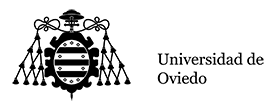A project in which 60 teenagers from all around the country took part, supported by a team which joined half hundred collaborators not only from the University but from other entities.
Is it possible to approach teenagers –future university students- to science and research from a holiday's point of view? This is the challenge, achieved once again successfully, proposed by the Summer Scientific Campuses which in its 2011's edition have gathered 60 high school students, who came from all the points of Spain to take part in this unique experience.
They were distributed in four projects on scientific approaching: "Man and Land: School of Geology", "Scientific Basis of criminal investigations", "Electronic Engineering in everyday life" and "The Cells' language".
The Geology course ranged from recognizing stones and analyzing landscapes to the secrets of earthquakes, tsunamis and volcanoes, as well as installing a seismic station or a trip to Babia's shire.
Criminology and all its arsenal of research resources based on other sciences (Physics, Chemistry, Biology, Mathematics...) gave rise to funny internships with sleuthing investigation flavour.
El papel de la tecnología en nuestras vidas fue el hilo conductor del curso dedicado a la Ingeniería Electrónica, con aplicaciones que abarcaron desde los usos en la industria, la educación y el ocio hasta la sanidad o los sistemas de comunicación más modernos.
Technology's role in everyday life was the guideline thread of the course about Electronic Engineering, with applications ranging from uses in industry, education and leisure to health care or the most modern communication systems.
New technologies and their tools were also centre stage in the course "The Cells' language", in which, in addition to reviewing basic concepts about morphology and cell biology, trainees could experiment with high-tech equipment used in this field.
As complement to their participation in these approaching projects, their training was completed with the acquirement of dissemination and communication techniques and skills which were very useful when elaborating a final project and a public exhibition of their results. Furthermore, they took part in several leisure, cultural and sport activities to get enriched by the experience.
Asturian media reflected this initiative extensively as it promoted research, development and innovation among its participants without forgetting other aspects which compose the Campus of International of Excellence's philosophy such as Internationalization and multi-culture; the teaching of transversal-communication skills, access to new technologies, gender equality, the relation with the company- and the general promotion of culture and the natural and historical heritage of the Asturian territory.









